Colon Cancer & Rectal Cancer Staging
 If the biopsy shows that colorectal cancer is present, your doctor needs to know the extent (stage) of the disease to plan the best treatment. The stage is based on whether the tumor has invaded nearby tissues, whether the cancer has spread and, if so, to what parts of the body.
If the biopsy shows that colorectal cancer is present, your doctor needs to know the extent (stage) of the disease to plan the best treatment. The stage is based on whether the tumor has invaded nearby tissues, whether the cancer has spread and, if so, to what parts of the body.
How the Colorectal Cancer Stage is Determined
Your doctor may order some of the following tests to determine the extent of the cancer:
-
Blood tests: Your doctor checks for carcinoembryonic antigen (CEA) and other substances in the blood. Some people who have colorectal cancer or other conditions have a high CEA level.
- Colonoscopy: If colonoscopy was not performed for diagnosis, your doctor checks for abnormal areas along the entire length of the colon and rectum with a colonoscope.
- Endorectal ultrasound: An ultrasound probe is inserted into your rectum. The probe sends out sound waves that people cannot hear. The waves bounce off your rectum and nearby tissues, and a computer uses the echoes to create a picture. The picture may show how deep a rectal tumor has grown or whether the cancer has spread to lymph nodes or other nearby tissues.
- Chest x-ray: X-rays of your chest may show whether cancer has spread to your lungs.
- CT scan: An x-ray machine linked to a computer takes a series of detailed pictures of areas inside your body. You may receive an injection of dye. A CT scan may show whether cancer has spread to the liver, lungs, or other organs.
Your doctor may also use other tests (such as MRI) to see whether the cancer has spread. Sometimes staging is not complete until after surgery to remove the tumor. Learn more about surgery for colorectal cancer in the “Treatment” section.
The Stages of Colon and Rectal Cancer
Doctors describe colorectal cancer by the following stages:
Stage 0
The cancer is found only in the innermost lining of the colon or rectum. Carcinoma in situ is another name for Stage 0 colorectal cancer.
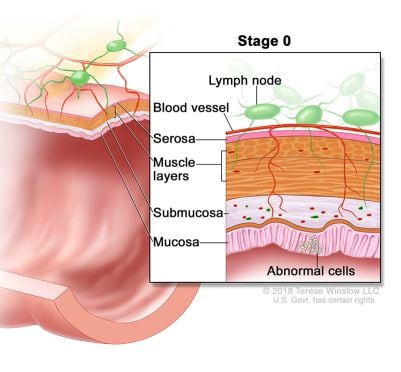
Stage I
The tumor has grown into the inner wall of the colon or rectum. The tumor has not grown through the wall.
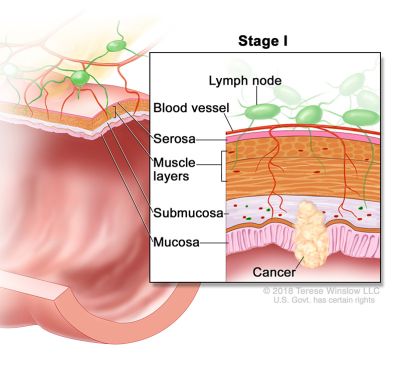
Stage II
The tumor extends more deeply into or through the wall of the colon or rectum. It may have invaded nearby tissue, but cancer cells have not spread to the lymph nodes.
Stage IIA: The tumor has grown through the colon or rectum wall but has not spread to nearby tissue or to the nearby lymph nodes.
Stage IIB: The tumor has grown through the muscle layers to the abdomen lining, called the visceral peritoneum. Cancer has not spread to the nearby lymph nodes or elsewhere.
Stage IIC: The tumor has spread through the colon or rectum wall and has grown into nearby structures. Cancer has not spread to the nearby lymph nodes or elsewhere.
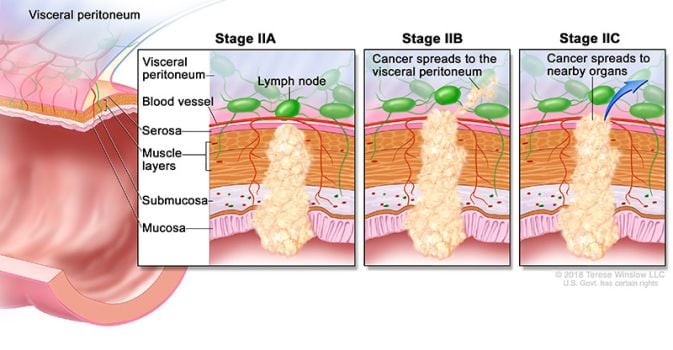
Stage III
The cancer has spread to nearby lymph nodes, but not to other parts of the body.
Stage IIIA: The cancer has grown through the inner lining or into the muscle layers of the intestine. It has spread to 1 to 3 lymph nodes or to a nodule of tumor cells in tissues around the colon or rectum that do not appear to be lymph nodes but has not spread to other parts of the body.
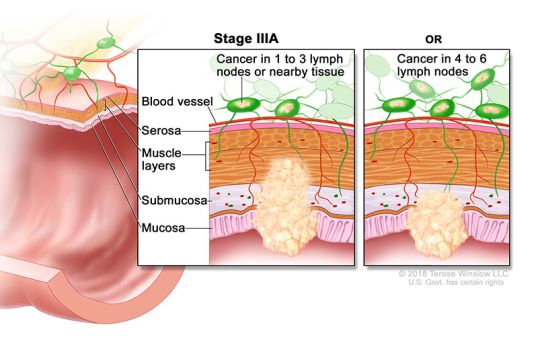
Stage IIIB: The cancer has grown through the bowel wall or to surrounding organs and into 1 to 3 lymph nodes or to a nodule of tumor in tissues around the colon or rectum that do not appear to be lymph nodes. It has not spread to other parts of the body.
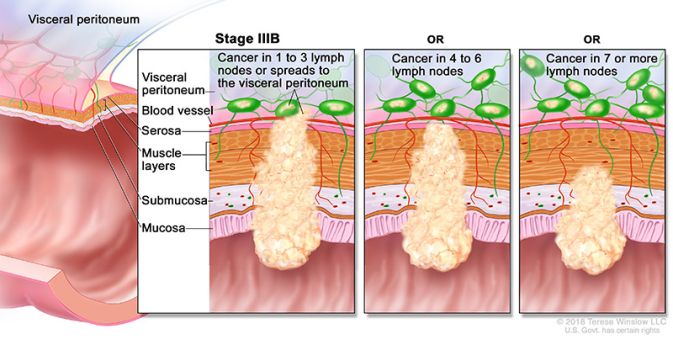
Stage IIIC: The cancer of the colon, regardless of how deep it has grown, has spread to 4 or more lymph nodes but not to other distant parts of the body.
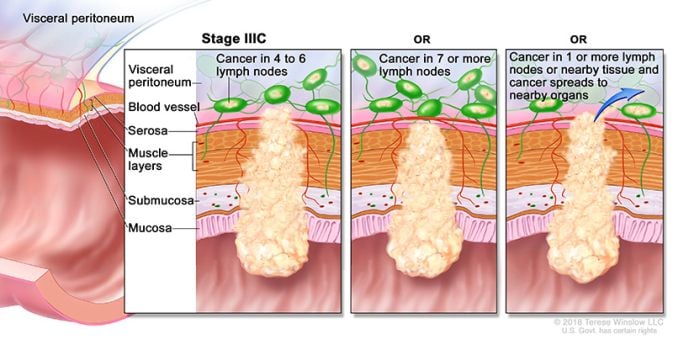
Stage IV
The cancer has spread to other parts of the body, such as the liver or lungs.
Stage IVA: The cancer has spread to a single distant part of the body, such as the liver or lungs.
Stage IVB: The cancer has spread to more than 1 part of the body.
Stage IVC: The cancer has spread to the peritoneum. It may also have spread to other sites or organs.
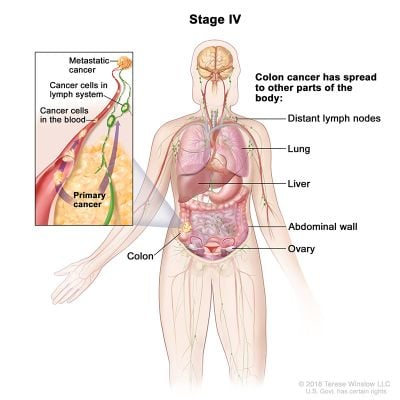
Recurrence
This is cancer that has been treated and has returned after a period of time when the cancer could not be detected. The disease may return in the colon or rectum, or in another part of the body.
The specialists at Virginia Oncology Associates understand that a colorectal cancer diagnosis can be overwhelming. Our colorectal cancer experts focus on providing patients with the best treatment options and overall cancer care. If you are seeking treatment or a second opinion for colorectal cancer diagnosis and treatment, find an oncologist near you in the Hampton Roads and Western Tidewater area.


